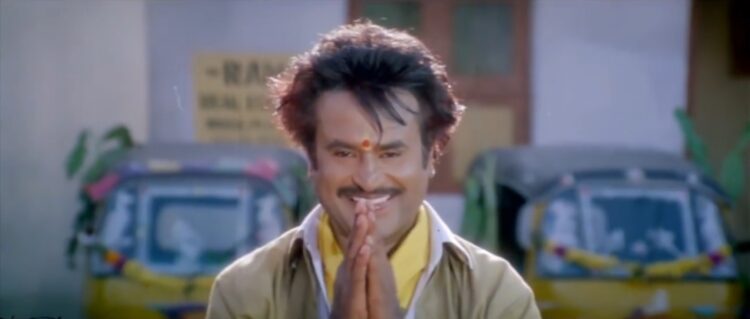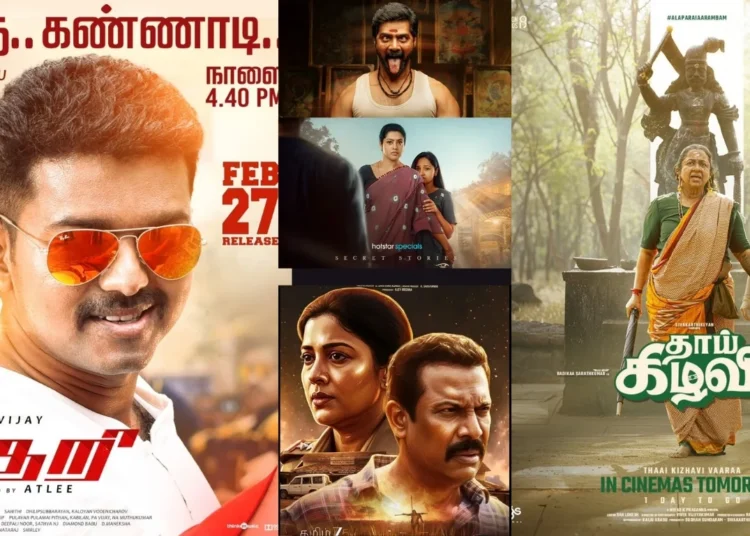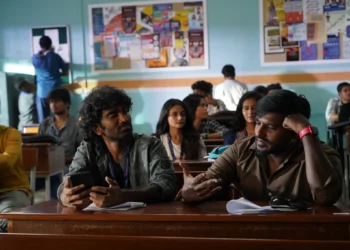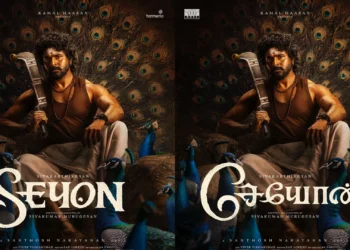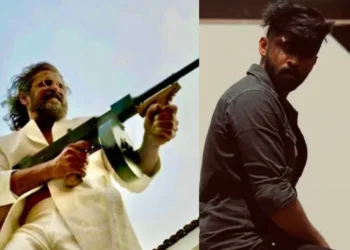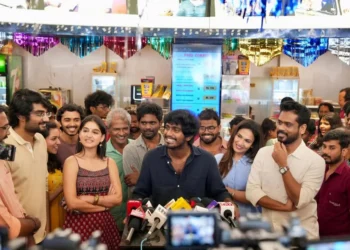I remember attending a special fan screening of Star Wars: The Last Jedi a couple of years ago. Emotions ran high throughout the film, with the packed theatre of close to 400 people clapping and cheering at all the right moments. But it was the end credits sequence that really got to me. When the words ‘in loving memory of our princess Carrie Fisher’ flashed on the screen, dozens of people ignited their lightsabers and raised em high in the air in respect and gratitude. It wrecked me. I walked out of the cinema that day with my sleeves soaked in tears. I’ve also heard stories of passionate 14-year-old K-pop fans who would storm airports and create a commotion at airports, awaiting the arrival of their idols. If you’re a fan of football, you probably know tales of Brazilian fans committing suicide when their country gets knocked out embarrassingly out of the world cup.
But there are no fans in the world quite as fervent and devout as the fans of Tamil cinema. Unlike in Hollywood where the fandoms these days are more franchised centric (i.e Star Wars, DC, Marvel, Harry Potter), Tamil cinema still revolves around stars and icons. And its fans hail and celebrate these stars so fiercely and vehemently that it transcends celebration into the realm of worship. Fans who bathe 20-metre high cutouts of their favourite stars with milk like they would a deity during a temple pooja. Fans who pierce themselves during Thaipusam in the name of their beloved icons. There’s a reason why for about 50 years, Tamilnadu’s longest reigning Chief Ministers have mostly been people who are from the film industry, particularly actors. Rinku Kalsy’s For the Love of a Man (currently streaming on Netflix Malaysia) is a simple exploration of this intriguing fan culture.
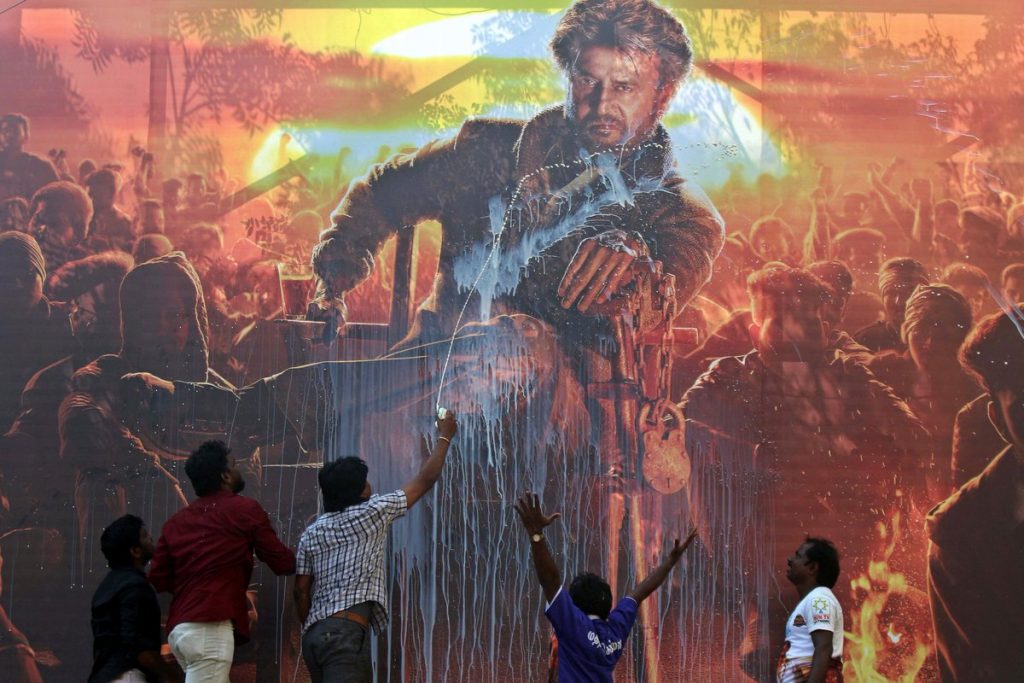
The ‘man’ in the title refers to the biggest star — THE SUPERSTAR — of Tamil Cinema, Rajinikanth (real name: Shivaji Rao) who is not just a man, but an enigma and an embodiment of charisma. Rajinikanth who has been virtually untouchable at the Tamil cinema box office since the 80s. Interestingly enough, besides a couple of scenes, Rajinikanth himself isn’t featured in this documentary. For the Love of a Man is about the people who have over the years elevated the revered movie star to a sacred demigod. It’s about the fans.
One expert interviewed in the documentary suggests that the fascinating nature of Tamil cinema fandom could be tied to the Dravidian movement who rejected the oppressive caste system and religion with it, embraced Atheism and looked elsewhere for inspiration. “They said no god. They didn’t say no hero.” It makes sense. Religion has always divided people, a lot of times even people within the same religion. The caste system of the Hindu religion in India is especially cruel. But film has the power to bring together the rich and the poor, the dark-skinned and the fair, the educated and the illiterate. It’s like watching a sporting event, both inclusive and communal. People of all walks of life (irrespective of religion or caste) come together, line up under the scorching sun to get opening night tickets to a Rajinikanth film.
Speaking of religion, I love how the documentary also links the rabid hero-worship of Tamil cinema to Hinduism. The oldest religion in India has always been about larger than life heroes in sprawling stories that are soaked in colour and filled with song and dance, so much so that the Hindu bibles Mahabaratha and Ramayana are known as epics. Indian Masala films are the same. And so the transition from idolizing a Hindu god/goddess to an equally larger than life Indian film star is an easy one.
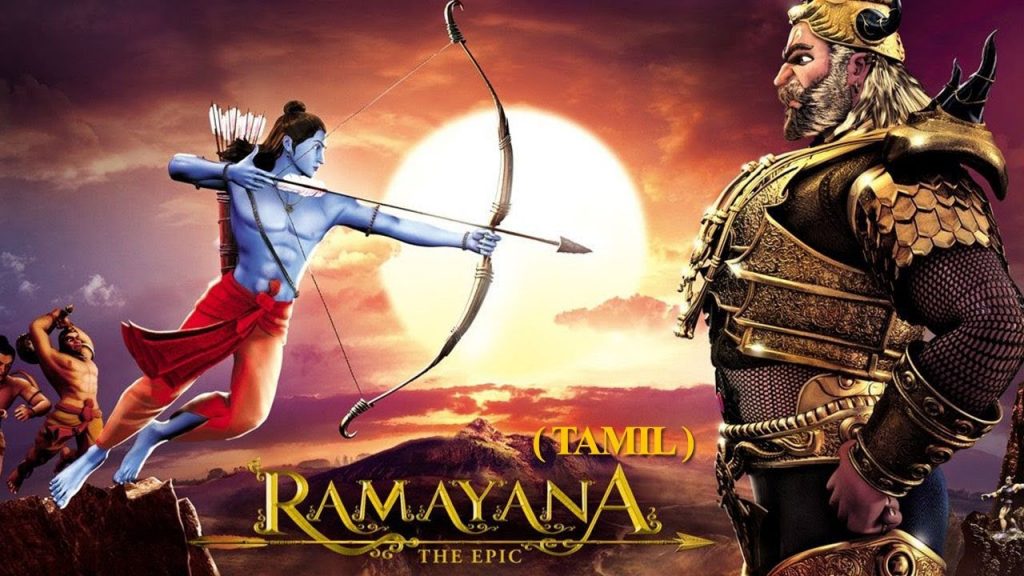
The documentary is at its most interesting when it squares in on two Rajini veriyans. Brothers N. Ravi and N. Murugan, who run a chain of milky sweet shops (inspired by Rajinikanth’s Annamalai in which he was a milkman) share a story about how worried they were when Superstar was hospitalized for 60 days in Singapore. Murugan, a lower-middle-class man and younger of the two brothers flew to Singapore just to be near the hospital where their hero was warded. I like that Rinku Kalsy chose to include the tiny details of Murugan’s story in his film, like the part where he was in complete awe of the Singapore hospital. It’s unlike anything he’s ever seen before, he describes. Midway through the story, Murugan broke down in tears as memories of a hospitalized Rajini started flooding in.
I think most Rajini fans remember this stressful period back in 2011, where we wondered if we were ever going to see our Thalaivar (leader) again. Which is why when Lingaa hit the big screens in 2014, many, including acclaimed young helmer and Rajini diehard Karthik Subbaraj defended this movie despite the film’s unbelievably poor writing and direction. “I’m just grateful to be able to see him on the big screen again,” Karthik Subbaraj has mentioned in many interviews.
Murugan and his brother grew up without parents. It was the heroic deeds of Rajinikanth’s on-screen characters and the simplicity of Rajini’s offscreen persona that taught and them life lessons and influenced them to be better people. Such is the Rajini religion.
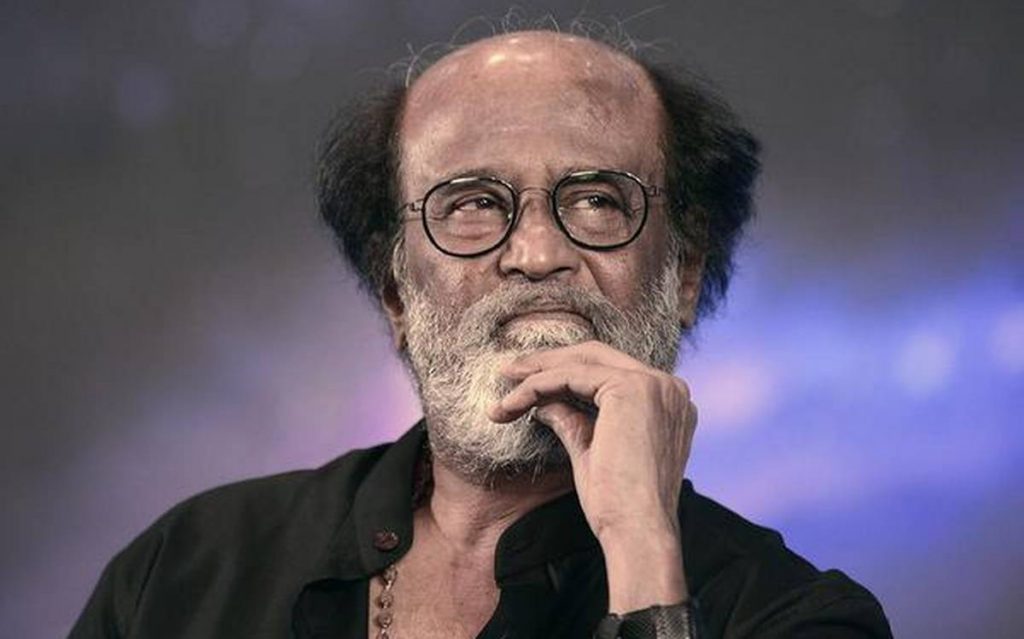
The interview with ex-gangster/peanut seller G.Mani is my favourite. I love that the film explores the negative side of fandom through a non-judgemental lens. On the one hand, G.Mani’s passion for Superstar is infectious. He dedicates his life to Rajini. We also see a cute scene where he playfully argues with his wife about going to an opening day show of Rajini’s new blockbuster. On the other hand, we see him pawning his wife’s jewellery to fund a Rajini fan club event. It’s sad to see Mani continuously ignore his duties as a husband and father, in name of Rajinikanth. It’s ironic considering in most, if not all of his movies, Rajinikanth plays action heroes who are also family men.
The interview with the mimicry artist is perhaps the weakest aspect of the documentary as it gets a little draggy without much dramatic tension. In fact, this Rajinikanth documentary lacks emotional weight or thrills that are present in the best documentaries. But as a whole, For the Love of a Man offers some interesting insight into the hero-worship culture of Tamil cinema, even if for the most part, it merely scratches the surface.
For the Love of a Man is currently streaming on Netflix Malaysia.
Follow us on Instagram, Facebook or Telegram for more updates and breaking news.


